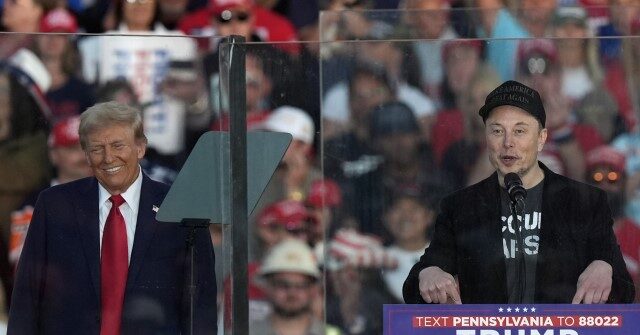In a recent conversation with Tucker Carlson on TCN, Elon Musk expressed his unwavering support for former President Donald Trump, candidly stating that he is “all in” for Trump’s potential candidacy. Musk shared a humorous sentiment about the stakes involved, jokingly mentioning, “If he loses, I’m fucked,” to which Carlson agreed, highlighting the intense pressure Musk feels regarding Trump’s political fate. This exchange reflected not only Musk’s personal stake in Trump’s success but also a broader commentary on the intertwining of business and political power in contemporary America.
Musk proceeded to address political figures, notably Vice President Kamala Harris, with sharp criticism. He referred to her as a “puppet” and spoke dismissively about the notion of her being targeted for political violence, suggesting that doing so would be ineffective. He clarified that his remarks were misunderstood by some, asserting his statement was never intended to incite violence against her. Instead, Musk was merely underscoring the idea that, ultimately, the responsibility for political actions lies with the system and not just its seemingly interchangeable participants, a sentiment he framed with dark humor.
The billionaire entrepreneur also recounted his experiences related to Trump, specifically referencing an incident during one of Trump’s rallies in Butler, Pennsylvania, where he mentioned an assassination attempt on Trump’s life. Musk’s close encounter with this narrative seemed to emphasize his connection to Trump’s tumultuous political journey, utilizing the gravitational pull of Trump’s narrative to bolster his public persona and political opinions. Highlighting the tangible threats faced by Trump, Musk suggested that Trump’s persona is more substantial and dangerous than that of politicians like Harris.
During the rally, Musk made a striking entrance that was emblematic of his energetic support for Trump, declaring himself not just a supporter but specifically identifying as “dark MAGA.” His exuberance underscored the fervor of a dedicated base rallying around a common cause as the crowd rallied behind him. Musk’s assertive declaration during the rally, telling Trump supporters, “This will be the last election” if they do not mobilize, served both as a rallying cry and a warning about the stakes of upcoming elections. His message was tailored to inspire action among the electorate, tapping into the urgent, high-stakes sentiment that characterizes contemporary political discourse.
The rally also emphasized Musk’s call to action: “Fight, fight, fight! Vote, vote, vote!” His exhortations aimed to invigorate Trump’s base and illustrate the urgency of the forthcoming elections, positioning them as pivotal moments in American democracy. This sentiment resonates profoundly as Musk channels the anxieties and hopes of a faction of voters who feel marginalized or threatened by the current political trends. He adeptly mirrored the emotional pulse of the audience, which can be pivotal in energizing a voter base leading up to an election season.
Overall, Musk’s commentary and actions reflect both his entrepreneurial spirit and the intertwining nature of business and political machinations in today’s society. His ability to navigate both worlds, presenting himself as both an influential businessman and a political supporter, illustrates a model of modern celebrity and influence where lines between sectors blur. As Musk finds himself under scrutiny for his political affiliations and ambitions, he seems, for now, to thrive on the volatile interplay of power, identity, and commitment within the context of American politics—a dynamic play that resonates across the socio-political landscape.

